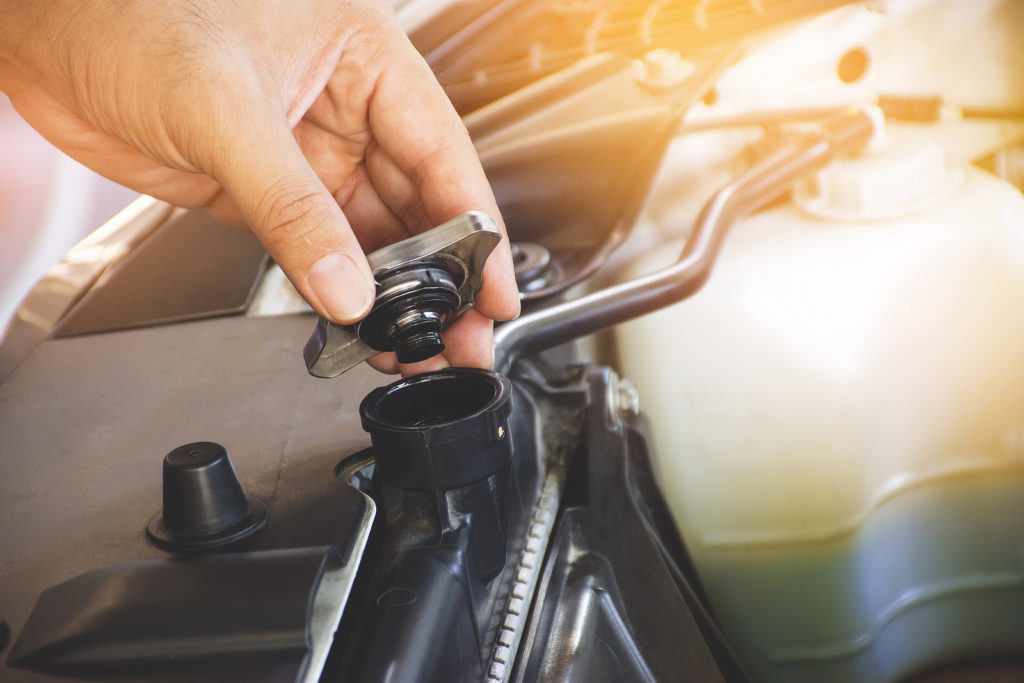Your car’s radiator is a vital auto part, so when it begins to show signs of distress or performance issues, it is important to take a closer look. Although there are many things that can go wrong with an automotive radiator, there are 3 primary reasons that contribute to radiator problems. Continue reading to learn the top three reasons why you are having issues with your car radiator, and how to avoid encountering such problems down the road.

What Your Radiator Does
Your car radiator is an important component because it helps regulate the combustion temperatures inside your engine as your car drives. The radiator makes sure that your engine does not overheat, which can damage several different inner and external components of the motor and any surrounding auto parts. For this reason, we fill our car radiator with anti-freeze, also known as coolant or radiator fluid, which brings us to the very first and most common reason why drivers experience problems with their car’s radiators: radiator overheating.
3 Radiator Problems and How to Prevent Them
Although natural wear and tear and simple old age can cause a car radiator to deteriorate and lose performance value, the top three reasons why most vehicle’s radiators experience issues, especially prematurely, are due to radiator overheating, rust accumulation, and leakages. In order to prevent radiator problems, it is important to stay current on all factory scheduled maintenance according to your vehicle’s owners’ manual.
❶ Radiator Overheating – Just like engine overheating, a radiator can run low of coolant, which can cause it to produce too much friction within the inner workings. Other causes of radiator overheating include broken or damaged auxiliary fans, damaged radiator structure, clogged or dirty radiator, and broken hoses that lead to coolant leaks. If your radiator or engine begins to overheat, immediately pull over to the right side of the road, and then call for Indianapolis roadside assistance service.
✔ Stay on top of all fluid refills and scheduled maintenance to avoid engine and radiator overheating.
❷ Radiator Rusting – Rusting, or oxidation, occurs when ferrous metal is exposed to oxygen and moisture in the environment. In the case of radiator rusting, such exposure can occur inside the radiator and on the exterior. To check for rust in the radiator, examine your coolant color. If it is brownish, you have rust in your coolant and should get a radiator flush as soon as possible. If you cannot see the color, take a look at the radiator cap. You will see rusty stains or brownish goo inside the cap if you have rust in your coolant.
✔ Be sure to always use a high quality anti-freeze to avoid radiator rusting.
❸ Radiator Leaks – If your radiator is overheating quite often, no matter how much you keep refilling the coolant, you could have yourself a leak. Cracks and external damages to the radiator can also lead to coolant leaks, which might occur after a car accident, or traveling on rough terrain. If your radiator is leaking, it is important to have it repaired immediately. It is not safe to operate a vehicle with a damaged radiator.
✔ Drive safely and on appropriate terrains to avoid radiator damages and coolant leaks.
Is your car radiator damaged or overheating at the moment? Contact Zore’s Towing for 24 hour roadside assistance and towing services in Indianapolis, today. We operate 24 hours a day, 7 days a week, and serve all of Central Indiana.
You Might Also Read:
Will My Car Overheat in Hot Weather?
Why is My Car Engine Overheating?
Important Car Maintenance You Can Do Yourself

